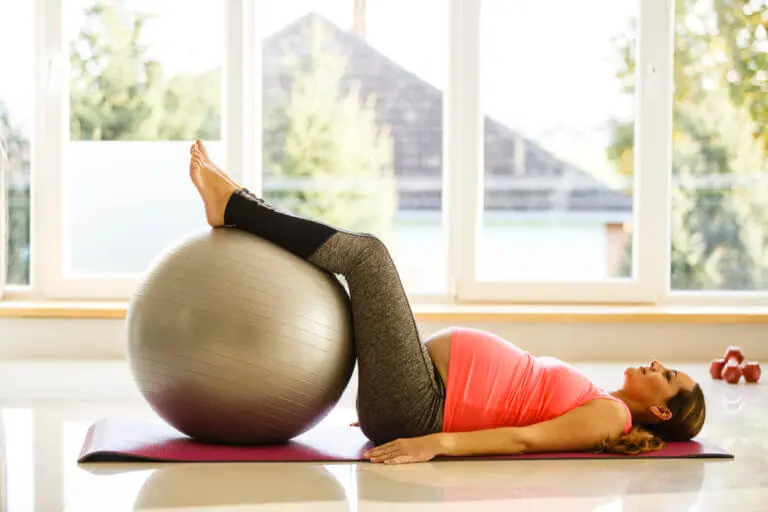
Expecting a baby doesn’t mean that you can’t stay active and exercise during your pregnancy. Exercising while pregnant is perfectly safe and very good for the health of both you and your baby. In fact, the more active and fit you are during pregnancy, the easier it will be for you to adapt to your changing shape and weight gain – and it will help you get back into shape after the birth.
Exercise can be of great benefit if you suffer from pregnancy-related problems such as back pain, low mood, trouble sleeping, or constipation. It can also help prevent high blood pressure and gestational diabetes, which can occur with pregnancy.
Safe Types of Exercise for Pregnancy
What’s important is to choose the right types of exercise and activity during pregnancy and to not overexert or exhaust yourself. You should be able to talk normally while exercising when pregnant. If you become breathless as you talk, then you are probably overdoing it. You may need to reduce your level of activity as your pregnancy progresses, but your medical team can advise you accordingly.
Aerobics
Gentle cardio activities such as swimming, brisk walking, cycling, using elliptical machines, and low-impact aerobics are considered the safest and most productive activities during pregnancy. They carry little risk of injury and can be done through each trimester of pregnancy until birth. Swimming is a great form of exercise and the water will support the weight of your baby.
If you choose to start an aerobics program, be sure to tell the instructor that you’re pregnant and begin with no more than 15 minutes of continuous exercise, three times a week. Your activity level can be increased gradually.
Pelvic Floor
Exercises to work your pelvic floor may help strengthen the muscles that will be stretched during pregnancy and childbirth. Your pelvic floor muscles support your bladder, bowel, and uterus and help them to work properly. When you’re pregnant, these muscles help support your baby so it’s important to keep them strong. Not only will it help you during labor, it will also reduce the risk of problems like incontinence after you give birth.
Special Considerations
The types of exercise that are suitable for you also depend on your health and level of fitness prior to pregnancy. If you weren’t active before you got pregnant, don’t suddenly take up strenuous exercise, as this could cause you injury and harm your baby. Also, if you have a pregnancy-related condition such as bleeding or spotting, low placenta, risk of miscarriage – or a medical problem such as asthma, heart disease, or diabetes – then exercise may not be advisable. Talk to your health care team before beginning an exercise program. They can give you personal exercise guidelines based on your medical history.
Do’s and Don’ts When Exercising
- Before you work out, be sure to warm up first and cool down after
- Try to keep active on a daily basis: half an hour of walking each day is ideal, but any amount is better than nothing
- Avoid strenuous activity in hot weather
- If the weather is hot, you’ll want to drink a lot of water
- If you go to exercise classes, make sure the instructor is properly qualified and is aware of your pregnancy
- Exercises with a risk of falling or injury – such as contact sports, cycling, hockey, horse riding, and gymnastics – should be avoided or done with caution, as falls, knocks and blows may risk damage to the baby
- Don’t lie flat on your back for prolonged periods, especially after 16 weeks, because the weight of the baby presses on the main blood vessel that brings blood back to your heart, possibly causing a faint feeling
Compassionate Pregnancy Care in Syracuse
Keep in mind that exercise can help you even when it’s simple and light. To learn more about the benefits of exercising during pregnancy, or to resolve any pregnancy concerns, contact University OB/GYN Associates.
Call our Syracuse, New York location at (315) 464-5162 or request an appointment online with one of our caring and skilled OB/GYN specialists.



